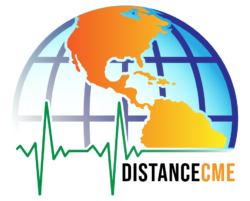If you have ever worked on an ambulance, you know that ambulance abuse happens. People call for an ambulance like they’re calling for a taxi. You pull up on scene, six vehicles sitting in the driveway, an entire family standing there, and the patient already has their bags packed, and they’re ready to hop in the ambulance. We all know it happens, and it is a running joke that it happens, but it is truly no laughing matter. Medics running from call to call, no breaks in between, not only physically and mentally wears out the medics, but it also drains our physical resources, its’s a constant barrage of calls to the 911 dispatchers, it puts a huge strain on your local hospitals and insurance companies too. So why does it happen, and what do we do about it.
What constitutes ambulance abuse or misuse? Calling 911 and then refusing any vitals, treatment, or transport to the hospital, why did you call for help if you don’t want help? Calling 911 because you think you will be seen in the ER faster, that isn’t going to make a difference, they evaluate people based off of a triage system. Calling 911 because you don’t want to pay for a taxi or use your own gas money, you can easily arrange transportation, an ambulance is not your taxi. Calling 911 to get free food or a free place to sleep for the night, many cities have shelters and other assistance available to the public.
So why does this happen? A lot of people abuse or misuse 911 services on a regular basis and they learn the system. A lot of towns and cities are overwhelmed by the number of 911 calls, so we have to triage them, the most life-threatening calls get an ambulance first, and non-life threats might have to wait until an ambulance is available. The misusers and abusers know that if they tell the 911 dispatcher that they just want a ride to dialysis or they stubbed their toe, then it might take them a long time to actually get an ambulance, so instead, they tell the dispatcher that they are having chest pain or having difficulty breathing, because they know that they will be a higher priority and an ambulance will get sent to them sooner. One huge problem with this, if we are misappropriating ambulances to people who don’t really need them, then people who truly do need help now have to wait longer. That longer wait could mean the difference between life and death for someone.
The misuse also happens because sometimes the only way an insurance company will cover the cost of medical treatment, is if someone gets seen in the emergency room, instead of going to a primary care physician or an urgent care. That means that more and more people with a runny nose, sprained wrist, or food poisoning are going to an ER, instead of a more appropriate doctor’s office. People also use 911 as preventative medicine. Routine obstetrical appointments, cardiac services, psychiatric care, and so much more, is expensive, so instead of finding a doctor and paying your co-pay, you go to the ER get all the same tests done, and likely won’t have to worry about having to pay for it.
What do we do about it? Some states have started to apply legal consequences for people who are abusing 911 services, but that usually doesn’t mitigate the misuse and abuse. Making the ambulance abusers wait in waiting rooms for hours and hours, doesn’t deter them. Sending them ambulance bill after ambulance bill likely won’t stop it. One day they will have a legitimate issue, so if they call for help, we must respond, so what do we do? Generally sharing information is the best prevention. Telling people when they should call for help, and when they’d be better off at another location, such as a rehab or psychiatric facility, urgent care, doctor’s office, or even telling them that they can go into any pharmacy and get some over the counter cold, flu, or pain medication. Sharing the information as to when they should or should not call might make a difference, or it might not. It can be incredibly frustrating for those working in 911 because we can’t refuse to help just because we don’t agree with why you called, and one day you might have a real emergency. Until there is a fundamental change in the system, ambulance abuse and misuse is something that we will have to deal with.
When should you call for an ambulance? When you have: Difficulty breathing, shortness of breath, chest or upper abdominal pain or pressure, fainting, sudden dizziness, weakness, unusual changes in vision, unusual confusion or changes in your mental status, any sudden or severe pain, any uncontrolled bleeding or fractures (if a Band-Aid is sufficient, it isn’t uncontrolled), if you have been assaulted, severe or persistent vomiting or diarrhea, coughing or vomiting up blood, suicidal or homicidal feelings, difficulty speaking or numbness or weakness in any part of your body, unusual abdominal pain. (John Hopkins Medicine, 2023). There are many other good reasons to call for help, that is not an all-inclusive list.
References
John Hopkins Medicine. (2023). When to Call For Help. John Hopkins Medicine. https://www.hopkinsmedicine.org/health/wellness-and-prevention/when-to-call-for-help#:~:text=Immediate%20medical%20attention&text=Difficulty%20breathing%2C%20shortness%20of%20breath,Changes%20in%20vision
